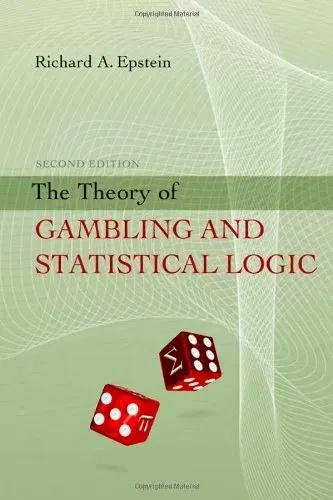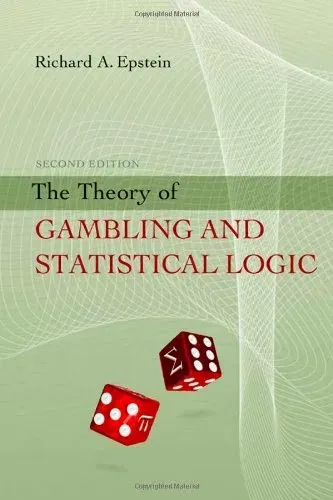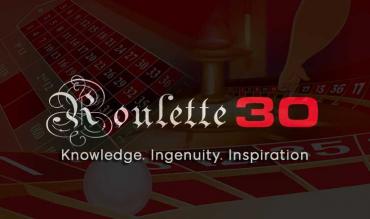This is our ever expanding free roulette library. There are really many good, enjoyable and eye-opening books about roulette and gambling. If you play roulette seriously, you better know a thing or two about probability, chance and the mathematics of the game. However the scope of our library is greater than just roulette. In true roulette 30 fashion, as our collection expands we will touch the philosophical aspect of randomness and the psychological aspects of gambling too.
The books are in .pdf and you can read them online or download them to your computer.
Roulette books list:
- Monte Carlo anecdotes and systems of play
- The Doctrine of Chances by Abraham de Moivre
- Quantum Paradoxes – thinking beyond roulette
- John Solitude’s Roulette Guide
- The theory of gambling and statistical logic
- Probability Theory: The Logic of Science
- Introduction to Probability
- A book about human Irrationality
- Probability Theory by Mattias Lowe (70 page essay. Covers many issues. Uses too much advanced mathematics.)
“The theory of gambling and statistical logic” by Richard A. Epstein
Shortly after pithecanthropus erectus gained the ascendency, he turned his attention to the higher-order abstractions. He invented a concept that has since been variously viewed as a vice, a crime, a business, a pleasure, a type of magic, a disease, a folly, a weakness, a form of sexual substitution, an expression of the human instinct. He invented gambling.
Archaeologists rooting in prehistoric sites have uncovered large numbers of
cube-shaped bones, called astragalia , that were apparently used in games some thousands of years ago. Whether our Stone Age ancestors cast these objects for prophecy or amusement or simply to win their neighbor ’ s stone axe, they began a custom that has survived evolution and revolution.

|
| Click above to read or download the full book |
DECISION MAKING AND UTILITY
The essence of the phenomenon of gambling is decision making. The act of
making a decision consists of selecting one course of action, or strategy, from
among the set of admissible strategies. A particular decision might indicate the
card to be played, a horse to be backed, the fraction of a fortune to be hazarded
over a given interval of play, or the time distribution of wagers. Associated with
the decision-making process are questions of preference, utility, and evaluation
criteria, interalia . Together, these concepts constitute the sine qua non for a
sound gambling-theory superstructure.
Decisions can be categorized according to the relationship between action
and outcome. If each specific strategy leads invariably to a specific outcome,
we are involved with decision making under certainty . Economic games may
exhibit this deterministic format, particularly those involving such factors as
cost functions, production schedules, or time-and-motion considerations. If
each specifi c strategy leads to one of a set of possible specific outcomes with
a known probability distribution, we are in the realm of decision making
under risk . Casino games and games of direct competition among conflicting
interests encompass moves whose effects are subject to probabilistic jurisdiction.
Finally, if each specific strategy has as its consequence a set of possible
specific outcomes whose a priori probability distribution is completely
unknown or is meaningless, we are concerned with decision making under
uncertainty.
[…]
Then, in 1654, came the most significant event in the theory of gambling as
the discipline of mathematical probability emerged from its chrysalis. A noted
gambler and roué , Antoine Gombaud, Chevalier de Méré, posed to his friend, the Parisian mathematician Blaise Pascal, the following problem: “ Why do the odds differ in throwing a 6 in four rolls of one die as opposed to throwing two 6s in 24 rolls of two dice? ” In subsequent correspondence with Pierre de Fermat (then a jurist in Toulouse) to answer this question, Pascal constructed the foundations on which the theory of probability rests today. In the discussion of various gambling problems, Pascal’s conclusions and calculations were occasionally incorrect, while Fermat achieved greater accuracy by considering both dependent and independent probabilities.
Works of E. T. Jaynes

Probability Theory: The Logic of Science by E. T. Jaynes is a very interesting, thought provoking essay on probability, that gathers various threads of modern thinking about Bayesian probability and statistical inference, and contrasts the advantages of Bayesian techniques with the results of other approaches.
Extremely interesting and readable works from Jaynes are also: Prior Probabilities and Probability as Logic.
Introduction to Probability
A good book about probability. Download it free here:
Introduction to Probability.
by Charles M. Grinstead & J. Laurie Snell



